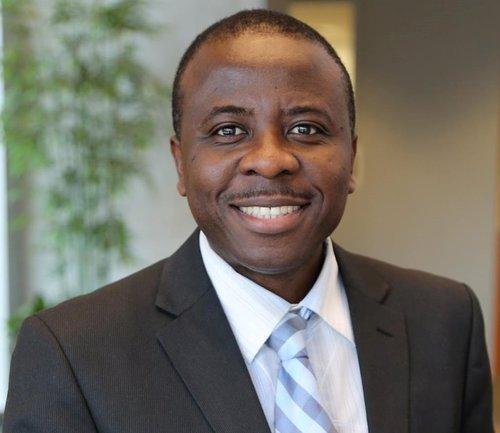
By Joseph K. Assan, PhD, Assistant Professor of International Political Economy of Sustainable Development, Heller School for Social Policy and Management, Brandeis University
Social scientists are actively involved in working with government officials, academics, the private sector, NGOs and policy officials to understand as well as develop solutions to address the current challenges of graduate unemployment and under employment in sub-Saharan Africa. This is a problem that is close to home for me as an African scholar and a social scientist who undertakes research that has application to social policies and development. I have been keen on understanding and investigating the factors that allow these patterns of unemployment to persist given the enormity of its impact on individuals, households, communities and countries across the continent.
Understanding Sub-Saharan Africa’s Unemployed Graduate Youth Crisis
Sub-Saharan Africa has the fastest growing youth population in the world, with 60 per cent of its population under 24 years old. Harnessing their capability would require increased and focused investments in education, to ensure a healthy labor force that is capable of meeting the demands of our current local and globalized job markets. The International Labour Organization (ILO) suggests that the youth (15–24 years) unemployment outlook for the major economies of the African region remains quite mixed, ranging from 1.8% in Benin to 54.4% in South Africa. ILO further reveals that working poverty rates among youth in sub-Saharan Africa was nearly 70 per cent in 2016, translating into 64.4 million working youth living in extreme or moderate poverty (less than $3.10 per day). According to the same source, the number of poor employed youth has unfortunately risen by as much as 80% over the past 25 years. Many sub-Saharan African countries are experiencing a youth bulge with some having up to 80% of the population under 35 years. Given the region’s emerging demographic projections, this problem will not go away anytime soon. It is my view that for university graduates to effectively contribute to their respective national economies, and address the current youth unemployment crisis, there should be employment initiatives and approaches to transition them to formal employment.
Understanding the Reality of the Problem
The region’s public sector is shrinking, and the private sector is unable to absorb the number of job-seeking graduates. Encouraging startups and innovation in business is an important aspect to jump-start entrepreneurship; yet there is a lack of capital investment and skills for university graduates to be successful in these ventures. Many young people have subsequently enrolled in tertiary (postsecondary) institutions with the hope of overcoming this vicious cycle. Such decisions have consequently created another problem: how to transition university students to job seekers and entrepreneurs.
Inadequate employable skills within the tertiary educational curricula and teaching programs are serious barriers that seem to precipitate the patterns of unemployment and underemployment amongst university and college graduates in Africa. One potential solution is to improve the skills-based curriculum in tertiary level educational programs while enacting policies that address this gap. Employers want assurances that graduates can deploy their knowledge to solve problems. My research suggests that these skills are unfortunately not integrated into the curriculum of many tertiary educational institutions in sub-Saharan Africa.
Understanding the Path to Employment
Twenty-first century jobs are seen to require “soft skills” such as critical thinking and communication. Employers seek graduates with social, communication, and higher order thinking skills; intrapersonal skills; and positive self-attitude. Employees are expected to understand these key soft skills, which can improve outcomes across industries and vocations.
While some institutions across the region have soft skills programs embedded within their curricula, many students are not aware of their existence partly because these programs lack structure. Skills like communication and critical thinking are delivered as stand-alone university courses to all the students within the institutions without direct application to any specific subject, profession, or career field. Students are therefore not able to make the needed application to their future careers, which then affects their confidence in deploying such skills in the professional environment.
Developing employment training programs, which offer access to education and pathways to employment, is a promising avenue to help young graduates break through the cycle of unemployment and youth poverty in sub-Saharan Africa. One way of addressing this challenge is through a global partnership, where social scientists in developed economies, like the U.S., work with colleagues in African universities, government agencies, and development organizations to tackle this problem. The use of Employment Training Curricula (ETCs) which integrate academic courses, career development, and mentorship programs with coaching of students and graduates is vital. I am confident that combining this with inclusive programs in employment, entrepreneurship, and internship opportunities will have a sustainable impact.
JOSEPH K. ASSAN, PhD, is currently Assistant Professor of International Political Economy of Sustainable Development at the Heller School for Social Policy and Management, at Brandeis University, Waltham, Massachusetts. Joseph Assan is a Lead Investigator at the Center for Global Development and Sustainability, The Heller School for Social Policy and Management, Brandeis University. Until his appointment at Brandeis, Joseph was Assistant Professor of Development Practice at Trinity College Dublin. Prior to this, he served as the Director of the International Development Program at the University of Liverpool, UK. Joseph has extensive field research experience in cross-sector partnerships in international development and social policy. He teaches several graduate level courses including a popular course on Livelihoods, Enterprises and Development, which is taken by students from Africa, Asia, Latin America and Caribbean, the Pacific Islands and United State. Joseph is working with the director and a team of social scientists at the Center for Youth and Communities at The Heller School for Social Policy and Management at Brandeis University, on a USAID funded collaborative partnership project on Youth Livelihoods and Economic Opportunity: Investing for Impact in Higher Education and Private Sector Partnerships in Ethiopia. This collaborative partnership project involves the Ethiopian Ministry of Education, Save the Children and several Universities in Ethiopia.